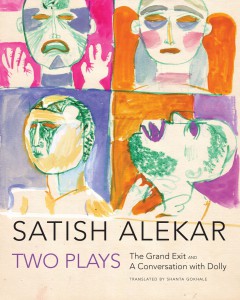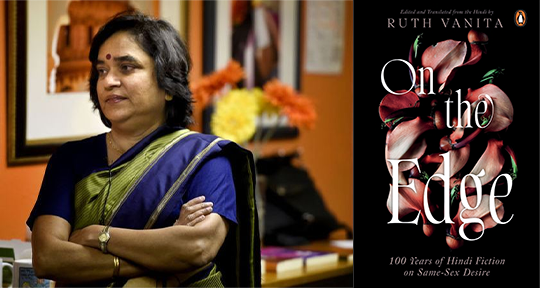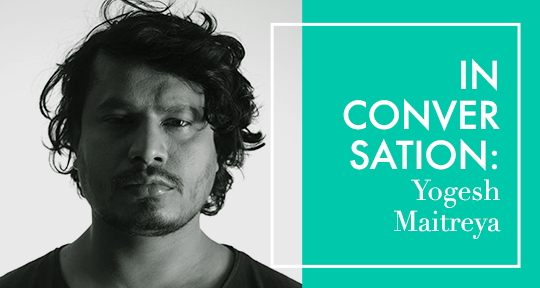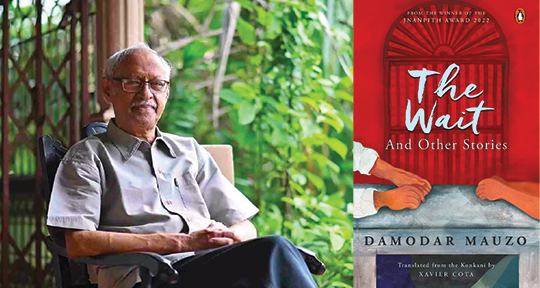Indian Dalit writer, translator, and publisher Yogesh Maitreya believes in the freeing impulse of literary translation: “a conscious and political decision and process [which can] reclaim the humanness of an oppressed person and make him a free man in the imagination of readers.” He problematises, however, the Anglophone literary production in India, denouncing the Brahminical hegemony that governs it. It comes as no surprise, then, that in Vernacular English: Reading the Anglophone in Postcolonial India (Princeton University Press, 2022), Akshya Saxena sketches Maitreya’s poetry as “self-defense,” operating on “an imperative to write in English” that emphasises language’s function in class and politics. Such writing pursues a continual question: how can the liberated Dalit writer exist within the linguistic imaginary of their former colonial rulers, the British, and the current neoliberal one, the Brahmins? “In writing in English, Maitreya not only takes ownership of a language but also enters a hegemonic discourse that has excluded him,” Saxena adds. It is in this very material condition that Maitreya established Panther’s Paw Publication in 2016, an anti-caste press specialising in original writings in English and translations from Indian languages—especially Marathi and Punjabi, based in the city of Nagpur, Maharashtra.
In this interview, I conversed with Maitreya on his latest book, Water in a Broken Pot: A Memoir, out this year from Penguin Random House India; his translations of essays and poetry by Marathi-language Dalit writers; the centuries-old oral tradition of shahiri as music, cultural criticism, and poetry; and the archaic ethnopolitical ideologies of India’s caste system, epitomised in literature, literary translation, and publishing.
Alton Melvar M Dapanas (AMMD): I love what you pointed out in your essay on the Dalit poet-filmmaker Nagraj Manjule: that the world sees India through the lens of writers from the Savarna upper-caste, such as Arundhati Roy, Salman Rushdie, Agha Shahid Ali, and Pankaj Mishra. For those of us non-Indians in the global literary community, can you tell us how caste is deeply rooted in the Indian worldview and way of life—especially in literary, cultural, and knowledge production?
Yogesh Maitreya (YM): Well, so far, the writers from India who have been writing in English and who are known to the world come out of a class that represents 2 or 3 percent of the total population of India—the Brahminical class, who have had the advantage of being with the British administration and their cultural programs from the beginning. Hence, their command over English as both language and literature is overwhelmingly hegemonic. In their English writings, with borrowed sensibilities from the West, they undeniably percolate caste values, which is rooted in denying many people fundamental human rights and ascribing to a few individuals a superior position in society from the moment they are born. India is a linguistic rain-forest, and English, within it, is the most aspirational season to be in, for several decades now.
English was an aspiration for me, too. However, I eventually had to consider that if my life—lived and imagined—is missing from this language, then I am essentially either not present in it, or I must have been erased. How come the Indian writers I had read for close to a decade did not communicate any sense or sensibilities of the life that was happening around me in their literature? I thought about it for a while—and then I realised that language is also a matter of confinement, in which some are allowed and made into a subject of intellectual contemplation and fascination, and others are denied their right to exist. This happens when the language is subjected to the practice of a certain class, where the majority of society is not present. As caste always gave privileged position to the Savarna class in cultural, literary, and knowledge production, it has been obvious that they have utterly failed to produce the sensibilities of the masses in their works of arts or literature. In fact, they could never do so because theirs is a life in total contradiction with Dalit-Bahujan masses. There is no desire in a caste society for assimilation. English literature from India by a Brahminical class is the most prominent example of it.
AMMD: Given the current hegemonies haunting the literary landscape in India, in what ways has the anti-caste press you founded—Panther’s Paw Publication—been an answer?
YM: Back in 2016, when I had thought of establishing a publishing house from my hostel room in Mumbai, I had a simple vision: to translate Marathi writers into English and publish them. Because Marathi is the language in which I have grown up, it was obvious for me to think of it with English, which came to me as an aspirational language of class, and also an indescribable form of freedom because I had read and seen people (mostly whites) being portrayed as “free” and “intellectuals” in it. I wanted to be both those things, and you can say that I also wanted to see my people, my history, and my emotions as being “free” in English from everything I was taught in caste society. English, excluding the writings of Brahmins and Savarna writers from India, felt much more respectful towards me, my history, and my people—hence why I chose it. I remember the first time I had written and read and recited my emotions in English, I felt a certain amount of separation from the drab life around me, and imagining or translating my life and the history of my people into English felt like a touch of liberation to me.
READ MORE…









